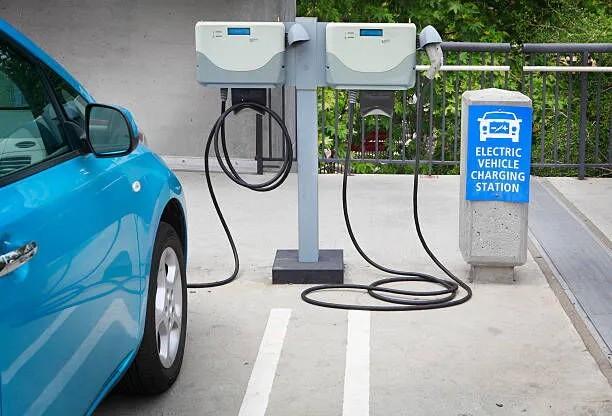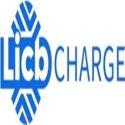Notifications

10 minutes, 27 seconds
-23 Views 0 Comments 0 Likes 0 Reviews

As a leading EV charger manufacturer in China, LiCB Charge offers reliable AC and DC electric vehicle charging stations along with comprehensive charging solutions.As cities expand and urban landscapes change, municipal regulations often require buildings to provide a set number of parking spaces. This ensures ample parking options for drivers. However, the rise of electric vehicles (EVs) has added a new dimension to the parking industry. EV drivers now seek more than just a place to park—they want access to charging stations. For parking lot operators, this shift presents a unique opportunity to stand out in a competitive market. By incorporating EV charging stations into their facilities, operators can attract new customers, generate additional revenue, improve occupancy rates, diversify services, and prepare their businesses for an electric future.
The transition to electric mobility is not a passing trend—it’s a fundamental shift in transportation. Governments worldwide are setting ambitious EV adoption targets, with some planning to phase out internal combustion engine (ICE) vehicles over the next few decades. This means that the demand for EV charging infrastructure will continue to rise. Parking lot operators who install charging stations now will establish themselves as leaders in this transition, ensuring their relevance and competitiveness in the future.
This article explores the benefits of installing EV charging stations in parking lots, provides guidance on implementation, and offers insights on how different types of businesses can tailor their charging infrastructure to meet customer needs.
Installing EV charging stations helps attract new customers. As the number of EVs on the road increases, so does the need for convenient charging options. EV drivers are willing to seek out parking lots with charging facilities, and once they find a reliable spot, they’re likely to return. This builds customer loyalty, leading to consistent revenue for parking lot operators.
For instance, a shopping mall with EV charging stations can draw in EV drivers who might otherwise choose a competitor without such facilities. Similarly, office parks or medical centers offering charging options can appeal to employees, patients, and visitors who drive EVs. By catering to this growing demographic, operators can set themselves apart from competitors and establish a reputation for being customer-focused and forward-thinking.
Offering EV charging also improves customer satisfaction. Many EV drivers experience “range anxiety”—the fear of running out of battery before reaching their destination. Reliable charging options alleviate this concern, fostering a positive experience that encourages repeat visits.
EV charging stations can serve as a new source of revenue. While the initial investment in charging infrastructure may be significant, the long-term returns can be substantial. Operators can charge a premium for access to charging stations, whether through flat fees, hourly rates, or a combination of both. Some may also offer tiered pricing, with faster charging options available at a higher rate.
In addition to direct revenue from charging fees, charging stations can drive indirect revenue by increasing foot traffic to nearby businesses. For example, a driver charging their vehicle at a shopping center may shop or dine while waiting, boosting sales for nearby retailers and restaurants.
Furthermore, operators can form partnerships with EV manufacturers, charging network providers, and other stakeholders in the electric mobility ecosystem. These partnerships can create additional revenue streams, such as sponsorship deals or revenue-sharing agreements.
Parking lots with EV charging stations are likely to see higher occupancy rates. As more drivers transition to EVs, the demand for charging-equipped parking spots will continue to rise. Offering EV charging helps ensure parking lots remain full, even during off-peak hours.
This is especially valuable for locations like office parks, medical centers, and university campuses, where vehicles tend to stay for extended periods. In these environments, Level 1 or Level 2 charging stations are ideal, as they provide slower charges that align with the longer parking times. For example, an employee at an office park who parks their EV for eight hours can fully charge their vehicle using a Level 2 charger, eliminating the need for additional stops during the day.
Higher occupancy rates boost revenue and improve the overall efficiency of parking lots, creating a more sustainable business model.
Integrating EV charging stations allows parking operators to diversify their services. Beyond just parking, operators can offer value-added services like fast charging, battery swapping, or concierge services for EV owners. This diversification not only improves the customer experience but also positions the parking lot as an innovative, customer-centric business.
Some parking facilities are introducing “smart” charging stations that allow users to reserve spots, monitor charging progress, and pay through mobile apps. Others are offering premium services, such as valet charging, where attendants plug in and unplug vehicles for drivers. These unique services set parking lots apart from competitors and create a compelling value proposition.
Diversification also opens the door to partnerships with other businesses. For instance, a parking lot operator could collaborate with a nearby coffee shop to offer discounts to customers charging their vehicles while enjoying a drink. These types of partnerships enhance the overall customer experience and generate additional revenue for both parties.
The transition to electric mobility is inevitable. Governments worldwide are setting aggressive EV adoption goals, and many countries are planning to phase out ICE vehicles in the coming decades. By installing EV charging stations now, parking lot operators can position themselves as leaders in this transition, ensuring they remain competitive and relevant in the years to come. This proactive approach not only future-proofs the business but also enhances brand image by demonstrating a commitment to sustainability.
Early adoption of EV infrastructure is likely to attract a loyal customer base and foster a reputation for offering reliable and convenient charging options. As the EV market continues to grow, the demand for charging infrastructure will only increase, making it essential for operators to stay ahead of the curve.
When considering the installation of EV charging stations, parking operators should evaluate factors like business type, expected demand, and available space. Below are some guidelines tailored to various business types:
Office Parks, Medical Centers, and University Campuses:
Level 1 or Level 2 chargers are suitable for these locations, as vehicles are typically parked for extended periods. The recommended ratio is 1-2 charging stations for every 10-20 parking spaces. Operators should survey employees, tenants, or visitors to assess the current and future demand for EV charging.
Apartments, Multi-family Complexes, and Condominiums:
Level 1 or Level 2 chargers are also ideal for residential settings. The same 1:10-20 charging station-to-spot ratio applies. Level 1 chargers may be more appropriate for overnight charging, but Level 2 chargers can accommodate faster needs.
Industrial Parks:
For employees’ personal vehicles, Level 1 or Level 2 chargers are sufficient, following the same density guidelines as office parks. For commercial vehicles like delivery trucks, more powerful charging solutions, such as DC fast chargers, may be necessary.
The integration of EV charging stations is becoming essential for parking lot operators. As EV adoption increases, providing charging infrastructure can attract new customers, generate additional revenue, improve occupancy rates, and help operators diversify their services.
Operators who invest in EV charging stations now will be better positioned to thrive as the industry transitions to electric mobility. By embracing this change, parking lots can future-proof their businesses and maintain their relevance in an increasingly electric future. The time to act is now—the future of parking is electric.Know more about Google SEO Directory
China EV Chargers EV Charger Manufacturer Smart EV Chargers Electric Car Chargers Electric Vehicle Chargers Electric Car Charging Stations
